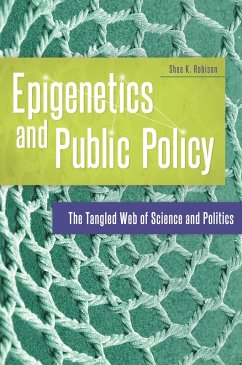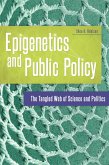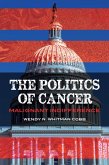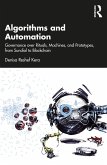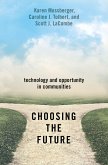When science changes, how does public policy respond?
Epigenetics-the study of internal and environmental factors that affect how genes are turned on or off and how cells read those genes-is a rapidly emerging science akin to genetics that introduces a number of novel and unexpected biological explanations of human origins and development. It also poses fundamental challenges to many of the assumptions of the prevailing science of genetics.
This book comprehensively considers the political implications of the emerging science of epigenetics in specific policy domains, addressing the intersections of epigenetics with cancer, obesity, the environment, and the law. Shea K. Robison carefully navigates the messy history of genetics and epigenetics in order to explore what changes in public policy might come in the age of a new scientific frontier. Readers will understand how new findings in epigenetic research and increased acceptance of epigenetic science may lead to paradigm shifts in cancer prevention and treatment, significantly different policy solutions for combating obesity, and revised statutes of limitations and laws regarding civil and corporate liability and wrongful life.
Epigenetics-the study of internal and environmental factors that affect how genes are turned on or off and how cells read those genes-is a rapidly emerging science akin to genetics that introduces a number of novel and unexpected biological explanations of human origins and development. It also poses fundamental challenges to many of the assumptions of the prevailing science of genetics.
This book comprehensively considers the political implications of the emerging science of epigenetics in specific policy domains, addressing the intersections of epigenetics with cancer, obesity, the environment, and the law. Shea K. Robison carefully navigates the messy history of genetics and epigenetics in order to explore what changes in public policy might come in the age of a new scientific frontier. Readers will understand how new findings in epigenetic research and increased acceptance of epigenetic science may lead to paradigm shifts in cancer prevention and treatment, significantly different policy solutions for combating obesity, and revised statutes of limitations and laws regarding civil and corporate liability and wrongful life.

